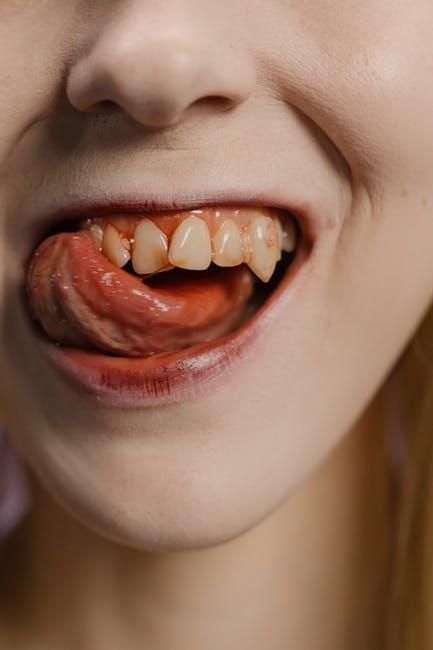
Investigation Uncovers Poor Quality of Dental Coverage Under Medicare Advantage
Dental care is a crucial component of overall health, especially for seniors. However, a recent investigation published by Medical Xpress has shed light on the disappointing reality facing many Medicare Advantage enrollees who rely on their plans for dental coverage. The report highlights significant shortcomings in the quality, accessibility, and comprehensiveness of dental care provided through these popular plans.
Overview: What Is Medicare Advantage and Its Dental Coverage?
Medicare Advantage (MA), also known as Medicare Part C, offers Medicare beneficiaries an alternative to Original Medicare by bundling hospital, medical, and sometimes prescription drug coverage into one plan. Many MA plans advertise dental benefits as part of their extra coverage offerings. But how good are these dental benefits?
While Original Medicare (Part A and Part B) typically does not cover routine dental services, Medicare Advantage plans can include some dental benefits such as:
- Preventive care (e.g., cleanings, exams, X-rays)
- Basic dental procedures (e.g., fillings, extractions)
- Major dental work (e.g., crowns, dentures) — varies widely by plan
Unfortunately, the investigation reveals that the promise of dental coverage under Medicare Advantage plans often falls short of beneficiaries’ expectations.
Key Findings from the Investigation
The Medical Xpress report surfaced several concerning issues with dental coverage under Medicare Advantage:
- Limited scope of dental benefits: Many MA plans offer only preventive care coverage, excluding restorative or major dental procedures that seniors need.
- High out-of-pocket costs: Enrollees frequently face high deductibles, copayments, or coverage caps that impede access to necessary dental care.
- Lack of provider networks: Many plans have restricted dental provider networks, forcing patients to travel far or pay more for out-of-network care.
- Insufficient transparency: Patients report difficulty understanding what dental treatments are covered, leading to surprise bills and confusion.
Table: Typical Dental Coverage Under Medicare Advantage Plans (Summary)
| Dental Service | Coverage Availability | Average Out-of-Pocket Cost | Common Limitations |
|---|---|---|---|
| Preventive Care (cleanings, exams) | Commonly Included | $0-$50 per visit | Usually limited to 2 cleanings/year |
| Basic Procedures (fillings, extractions) | Varies by Plan | $50-$200 per procedure | Often capped annually |
| Major Procedures (crowns, dentures) | Less Common | $200-$1,000+ | Many plans exclude or severely limit coverage |
| Orthodontics | Rarely Covered | Usually not covered | Generally excluded |
Why Does Poor Dental Coverage Matter to Medicare Beneficiaries?
Poor dental coverage under Medicare Advantage plans can have far-reaching consequences, including:
- Neglected oral health: Seniors may delay or avoid needed dental care due to cost or coverage issues, worsening oral diseases.
- Impact on general health: Gum disease and dental infections can exacerbate systemic health problems such as diabetes and heart disease.
- Financial strain: Unexpected dental bills can be burdensome for seniors on fixed incomes.
Benefits and Practical Tips for Navigating Medicare Advantage Dental Coverage
Despite the challenges, Medicare beneficiaries can still take proactive steps to manage their dental care effectively:
Benefits of Medicare Advantage Dental Coverage
- Bundled coverage simplifies managing multiple healthcare needs.
- Some plans offer additional hearing and vision benefits alongside dental.
- Preventive dental care often included at little or no extra cost.
Top Tips for Seniors
- Review plan details carefully: Always read the fine print on dental coverage before enrolling in or renewing a Medicare Advantage plan.
- Ask about provider networks: Verify if your preferred dentists are in-network to reduce costs.
- Budget for out-of-pocket costs: Expect that major dental work may require paying significant expenses yourself.
- Consider standalone dental plans: Supplemental dental insurance may fill gaps left by your Medicare Advantage plan.
- Use preventive care wisely: Regular cleanings and check-ups can prevent costly problems down the line.
Case Study: Mrs. Thompson’s Experience with Medicare Advantage Dental Coverage
Mrs. Thompson, a 72-year-old retiree, enrolled in a popular Medicare Advantage plan that advertised dental coverage. Initially, she was pleased with covered cleanings and exams. However, when she needed a crown after a broken tooth, she discovered her plan excluded major dental work, resulting in a $900 out-of-pocket bill. Frustrated, she switched plans the following year but still faced network limitations. Mrs. Thompson’s story is a common example illustrating the need for greater transparency and comprehensive offerings in MA dental coverage.
Conclusion: The Need for Greater Medicare Dental Coverage Reform
The investigation by Medical Xpress clearly underscores that while Medicare Advantage plans bring some dental benefits to millions of seniors, the quality and breadth of that coverage remain inadequate for many. Without reliable dental benefits, seniors face barriers to essential oral healthcare, risking both their oral and overall health.
As policymakers and healthcare providers seek to improve Medicare Advantage offerings, beneficiaries should stay informed and advocate for plans that better meet their dental health needs. In the meantime, understanding plan limitations and exploring supplemental options can help seniors make the most of the dental coverage they have.
By staying proactive and informed, Medicare beneficiaries can navigate dental care challenges and maintain healthier smiles throughout their golden years.


